let me
take you with me



















creative direction
graphic design
art direction
photography
layout
motion graphics
$2.25 out
the door
$2.25 out
the door
$2.25 out
the door
This series of essays explores the intersection of place and memory, and the impact it has on personal and collective design. The way I move through the world has influenced my design process in more ways than I realized, while compiling these stories. What started as an exercise in documentation through storytelling has evolved into a way of bringing you with me to specific moments in my past.
This series of essays explores the intersection of place and memory, and the impact it has on personal and collective design. The way I move through the world has influenced my design process in more ways than I realized, while compiling these stories. What started as an exercise in documentation through storytelling has evolved into a way of bringing you with me to specific moments in my past.
This series of essays explores the intersection of place and memory, and the impact it has on personal and collective design. The way I move through the world has influenced my design process in more ways than I realized, while compiling these stories. What started as an exercise in documentation through storytelling has evolved into a way of bringing you with me to specific moments in my past.
creative direction
graphic design
art direction
photography
layout
motion graphics
creative direction
graphic design
art direction
photography
layout
motion graphics

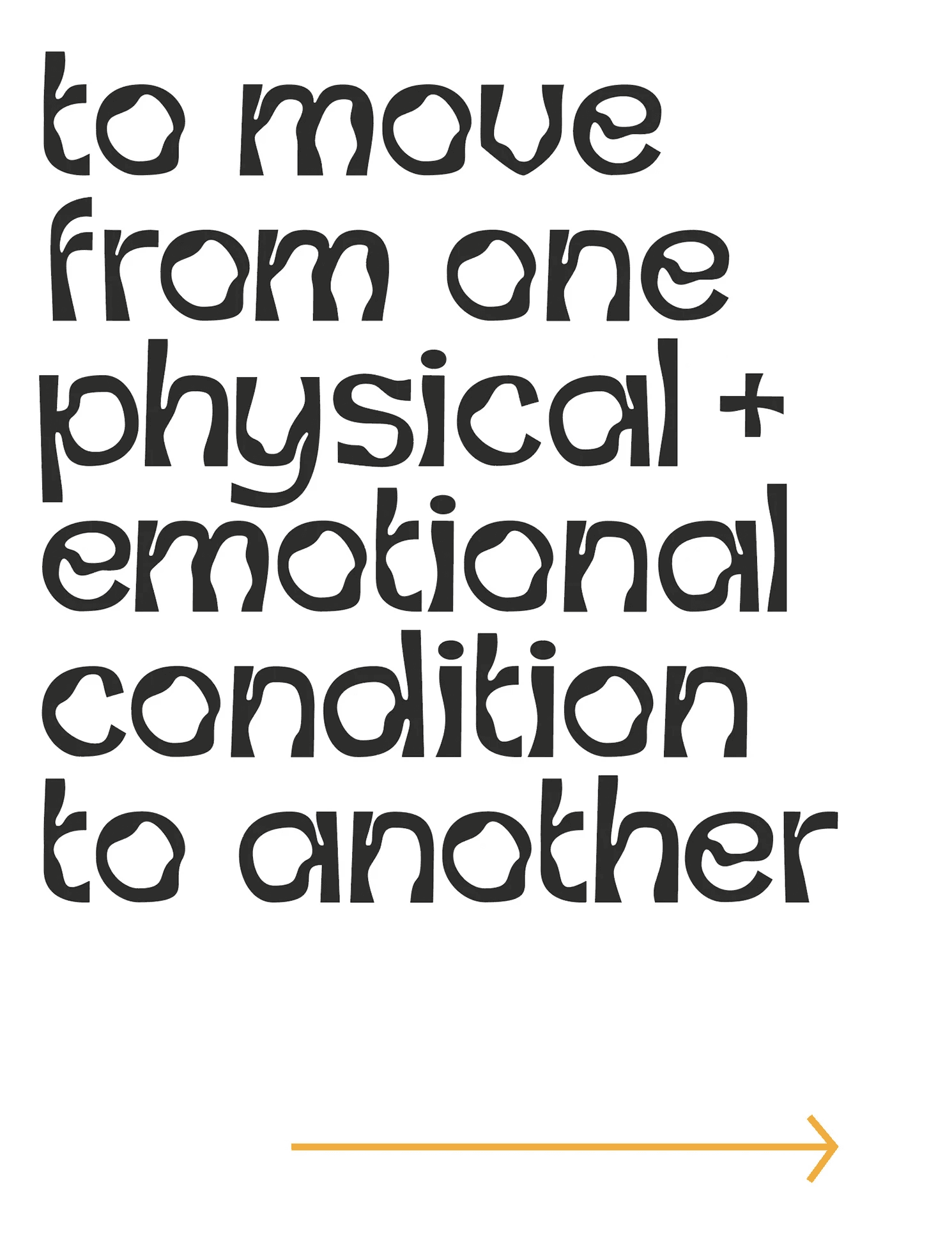
"I lived in three apartments and one shared room over the course of five years. I’d say two of them were nice. I moved out of the room in the place with the brown and cream pinstriped awning after about two months. I couldn’t take the musty smell, moldy walls, brown food, and lack of maintenance anymore. After a year of sharing a studio apartment in Pacific Heights, I decided I was ready for my own space. I moved into my first apartment by myself—a rundown building on the corner of O'Farrell and Larkin streets with a bodega on the ground level. The only booze my friends and I could afford were 40s—Miller High Life, to be exact. The circular, fluorescent orange stickers stamped on each bottle saying “$2.25 Out The Door” will live rent free in my memory for the rest of my life. It was a section of the city called the Tenderloin."
"I lived in three apartments and one shared room over the course of five years. I’d say two of them were nice. I moved out of the room in the place with the brown and cream pinstriped awning after about two months. I couldn’t take the musty smell, moldy walls, brown food, and lack of maintenance anymore. After a year of sharing a studio apartment in Pacific Heights, I decided I was ready for my own space. I moved into my first apartment by myself—a rundown building on the corner of O'Farrell and Larkin streets with a bodega on the ground level. The only booze my friends and I could afford were 40s—Miller High Life, to be exact. The circular, fluorescent orange stickers stamped on each bottle saying “$2.25 Out The Door” will live rent free in my memory for the rest of my life. It was a section of the city called the Tenderloin."
"I lived in three apartments and one shared room over the course of five years. I’d say two of them were nice. I moved out of the room in the place with the brown and cream pinstriped awning after about two months. I couldn’t take the musty smell, moldy walls, brown food, and lack of maintenance anymore. After a year of sharing a studio apartment in Pacific Heights, I decided I was ready for my own space. I moved into my first apartment by myself—a rundown building on the corner of O'Farrell and Larkin streets with a bodega on the ground level. The only booze my friends and I could afford were 40s—Miller High Life, to be exact. The circular, fluorescent orange stickers stamped on each bottle saying “$2.25 Out The Door” will live rent free in my memory for the rest of my life. It was a section of the city called the Tenderloin."






"My first experience with 火鍋 was at an all-you-can-eat banquet hall. It was enormous and bizarre, in the sense that it was all business. There was no ambiance whatsoever, just a huge kiosk full of raw meat, veggies, and seafood in the center of a gigantic room. You were supposed to go through and collect all of the ingredients you wanted to put in your broth. You then took your collection back to a table, where you cooked it in a personal pot of said broth. I swear this was the best 火鍋 I ate in Taiwan, despite fierce competition. I assumed all 火鍋 restaurants were like that one, but this was a gem of weirdness in an even weirder part of town, surrounded by rice fields. I went twice and never learned the name of it.
Taiwan has a serious do-it-yourself attitude toward food, which I really appreciated. Going to a new street stall or trying a different restaurant always felt like a new level in a choose-your-own-adventure game. It didn’t matter if they served the same kind of food you were used to getting somewhere else; there was always something slightly different about the way each place worked and the options they offered.
This model of having options with multiple possible outcomes has been an unexpected influence in some of my three-dimensional design work. How one person chooses to construct their dream meal drastically changes from the next. So does the way someone might design, build, and photograph something with seemingly simple materials. In a series of participatory design experiments, I prepared two platforms for people to choose their own adventure in a hands-on capacity. I wanted to know if each contributor would break boundaries or stay within the borders. Would they choose to create in all black, all white, or both? Would they choose to create a symmetrical composition or use the pieces to construct in a nonlinear, abstract way? The materials were supplied, but the options were endless."
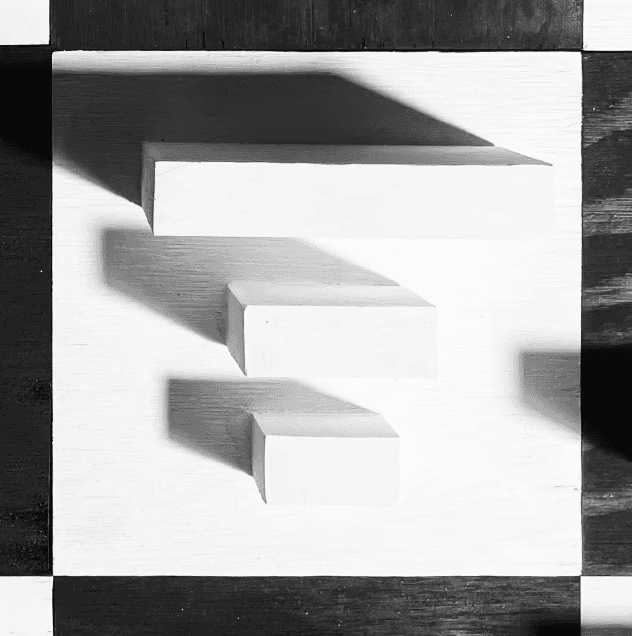














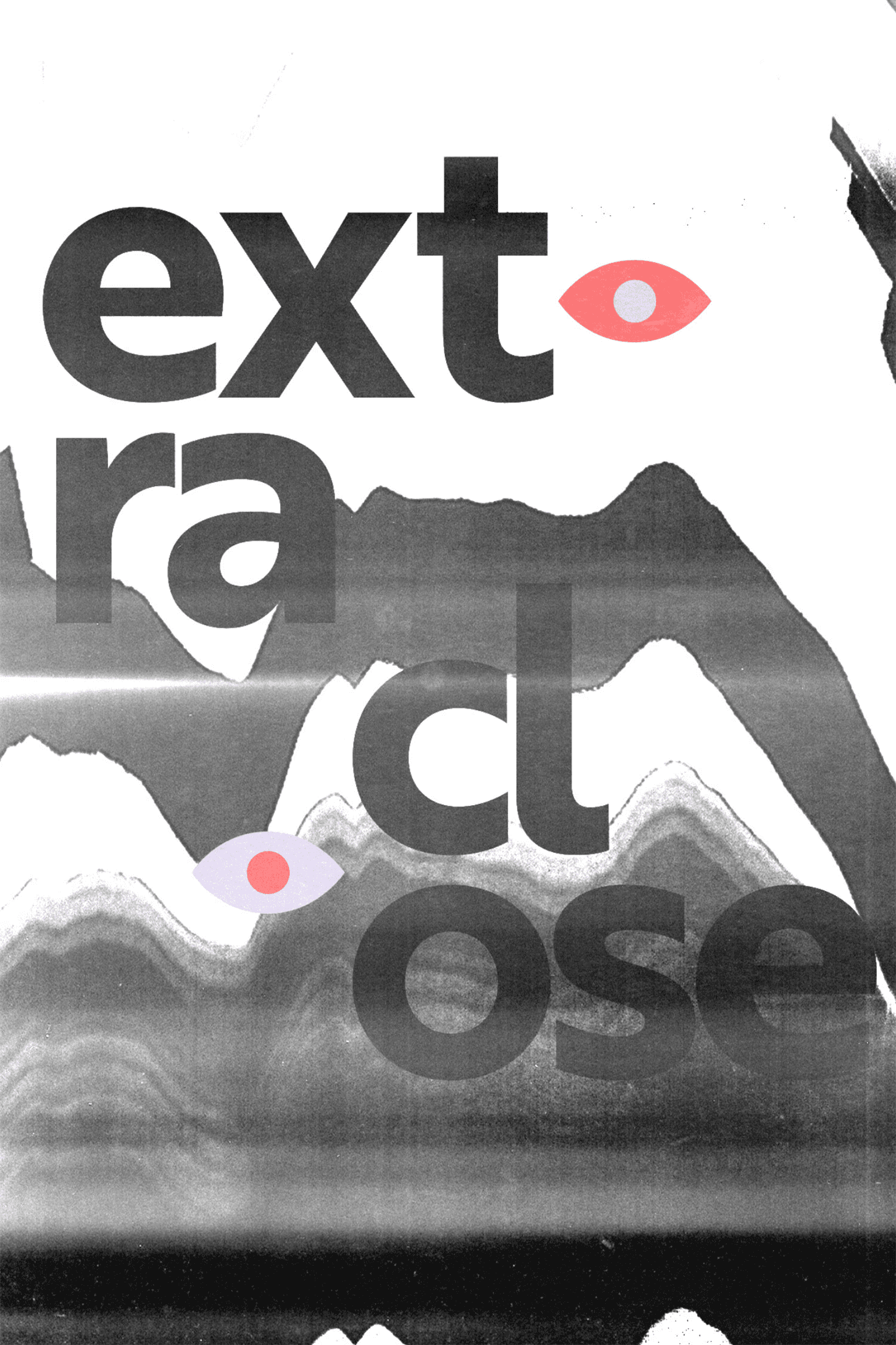

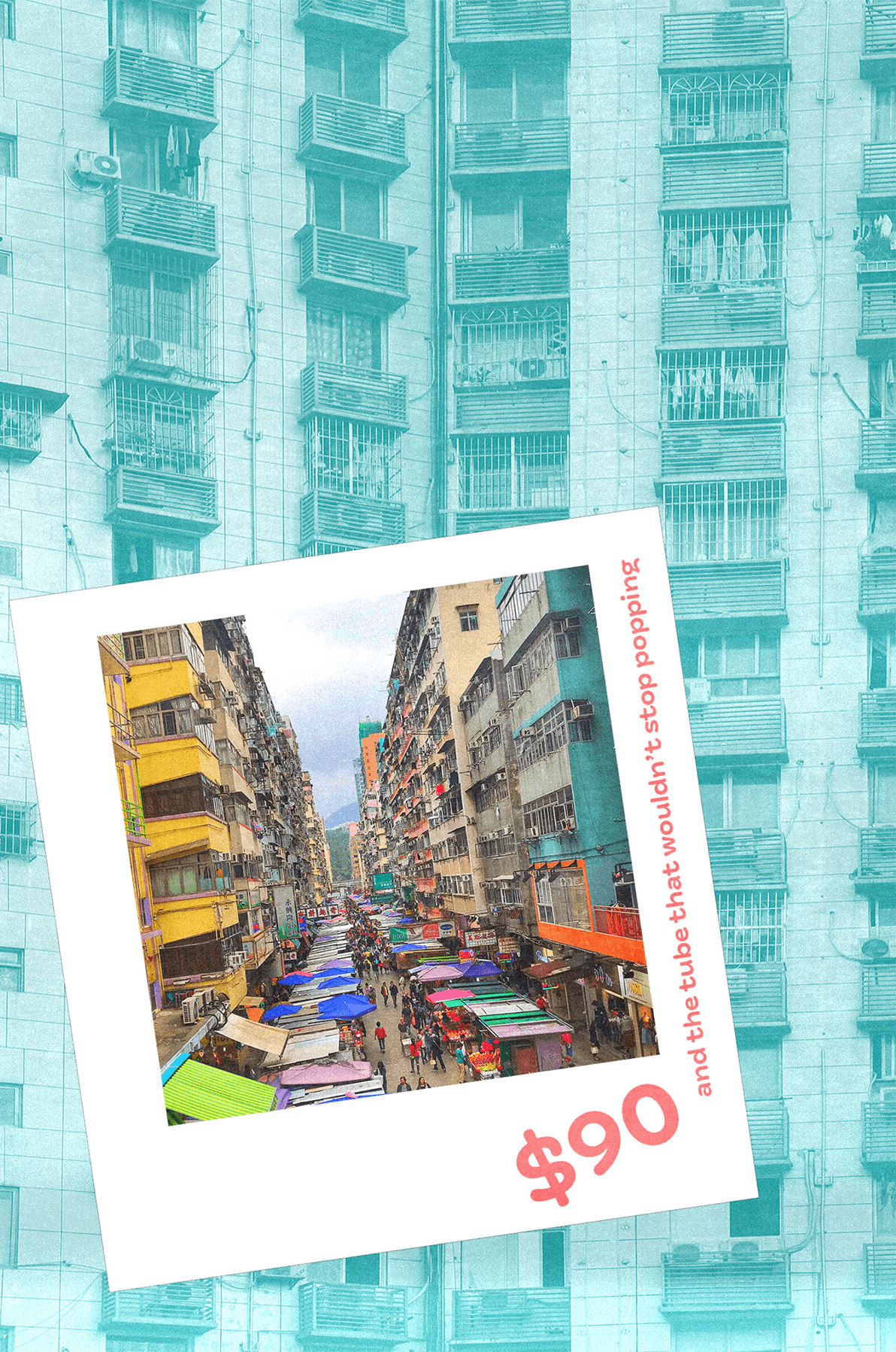


"I fell in love with biking in Taipei. The capital city is surrounded by rivers that intertwine and lead into neighboring cities and towns. They all have paved paths and riverside parks with temples, workout equipment, sculptures, basketball courts, and the occasional pop-up restaurant or bar. What started out as a means of transportation and occasional exploration turned into a way for me to get out of my head and connect with the world around me. It was both a source of creative inspiration and a way of centering myself. If I was riding along the river, I’d slip into an almost meditative state—my body knew exactly what to do, so my mind could focus and let go of all the chatter.
A common misconception is that memory only exists within the confines of the mind, and we assume our capacity to remember is directly related to the space we have allotted in our brains. As movement and activity have always brought me more clarity, I began to challenge this notion. Finnish architecture professor Juhani Pallasmaa writes, “Human memory is embodied, skeletal and muscular in its essence, not merely cerebral.” The act of remembering is a full-body experience, and I’m able to tap into it both consciously and subconsciously when I’m on my bike.
I’ve never witnessed a place that felt so alive 24 hours a day. It didn’t come alive at night—the energy was there all the time, which was exciting. I would ride my bike nowhere just as often as I’d ride it somewhere, just to catch a glimpse of the city from a new perspective. That way of observing and exploring crept into my creative work without me even realizing it. I started designing without an idea just as often as I’d design with one—leading to an unexpected visual library of my experiences."
"I fell in love with biking in Taipei. The capital city is surrounded by rivers that intertwine and lead into neighboring cities and towns. They all have paved paths and riverside parks with temples, workout equipment, sculptures, basketball courts, and the occasional pop-up restaurant or bar. What started out as a means of transportation and occasional exploration turned into a way for me to get out of my head and connect with the world around me. It was both a source of creative inspiration and a way of centering myself. If I was riding along the river, I’d slip into an almost meditative state—my body knew exactly what to do, so my mind could focus and let go of all the chatter.
A common misconception is that memory only exists within the confines of the mind, and we assume our capacity to remember is directly related to the space we have allotted in our brains. As movement and activity have always brought me more clarity, I began to challenge this notion. Finnish architecture professor Juhani Pallasmaa writes, “Human memory is embodied, skeletal and muscular in its essence, not merely cerebral.” The act of remembering is a full-body experience, and I’m able to tap into it both consciously and subconsciously when I’m on my bike.
I’ve never witnessed a place that felt so alive 24 hours a day. It didn’t come alive at night—the energy was there all the time, which was exciting. I would ride my bike nowhere just as often as I’d ride it somewhere, just to catch a glimpse of the city from a new perspective. That way of observing and exploring crept into my creative work without me even realizing it. I started designing without an idea just as often as I’d design with one—leading to an unexpected visual library of my experiences."


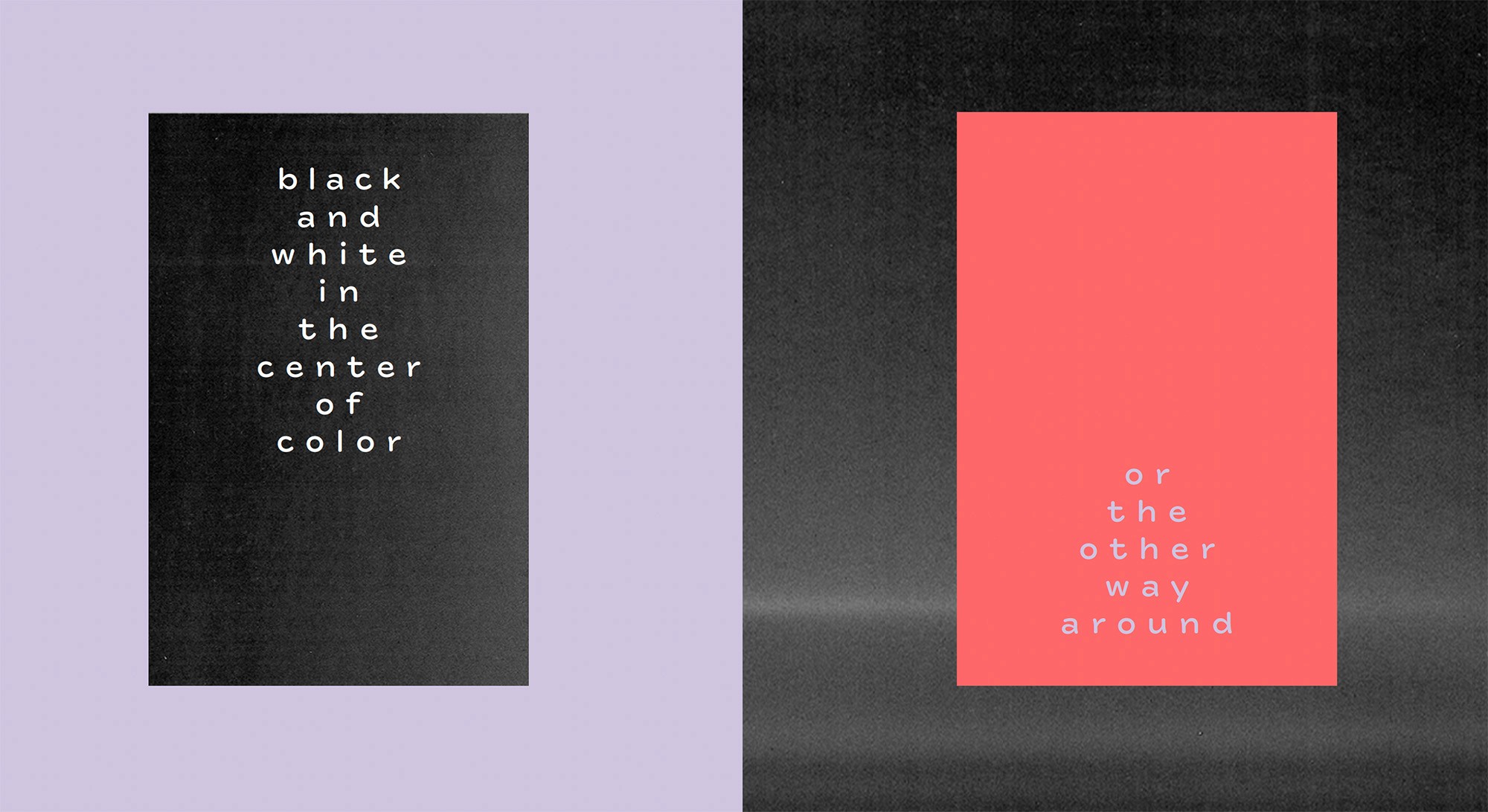

Written + designed by Leah Chutz at the Vermont College of Fine Arts | MFA in Graphic Design 2024
Written + designed by Leah Chutz at the Vermont College of Fine Arts MFA in Graphic Design 2024
Written + designed by Leah Chutz at the Vermont College of Fine Arts
MFA in Graphic Design 2024
website designed + built by me, leah
© 2024
website designed + built by me, leah
© 2024